Publications
Since 1989, FXB has created or participated in the publication of several reference documents which you will find on this page.
In addition, since the early 2000s, the FXBVillage Poverty Reduction Model has been regularly evaluated. A real impact on the economic, health and social status of children and adults has been demonstrated. Read the external evaluations.
Discover also our activity reports. Read the activity reports.
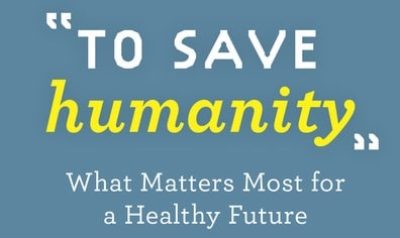
2015 - To save humanity what matters most for a healthy future
Edited by Julio Frenk and Steven J. Hoffman in 2015, “To Save Humanity : What Matters Most for an Healthy Future” aims to share powerful ideas from some of the world’s most thoughtful persons. In Chapter 13, Health Is Not Alone, Albina du Boisrouvray describes how, to improve health, other basic human needs must be met.
Visit website
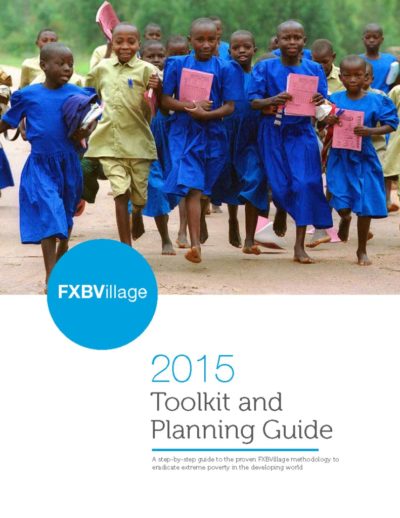
2015 - FXBVillage Toolkit and Planning Guide
On the occasion of FXB's 25th anniversary, Albina du Boisrouvray wanted to make the FXBVillage model accessible to other organisations that would like to strengthen their approach in the fight against extreme poverty.
Visit website

2012 - Cost of Inaction
In spring 2012, the FXB Center for Health and Human Rights at Harvard University published "The Cost of Inaction". With Professors Amartya Sen and Sudhir Anand leading the project, economists and public health researchers address the complex challenges of enumerating and quantifying the multiple social and economic costs that ensue when societies fail to meet the pressing needs of their most vulnerable members, namely children.
Chapter 5 of COI reports on research conducted in its FXBVillage programmes in Rwanda: Scaled-up FXB Intervention: An integrated approach to poverty reduction.
Visit website

2011 - Removing « Unfreedoms », Decreasing Vulnerability in Economic and Food Security : Year 1 Results of the FXB-Village Model in Rwanda and Uganda
This report published by the FXB Center for Health and Human Rights at Harvard University and FXB shows that the holistic approach taken in terms of guidance and support in accessing basic needs as well as financial inclusion trainings leads, among other things, to an increase in food and economic security as well as an increase in schooling rates among FXBVillage participants, already after one year of participation.
Visit website

2011 - Walk a mile in my Shoes - FXB Afrique du Sud
Young participants in FXB's after-school support programmes in the slums of South Africa were asked to write poems which were then published in a book with the evocative title 'Walk a mile in my Shoes'.
Visit website
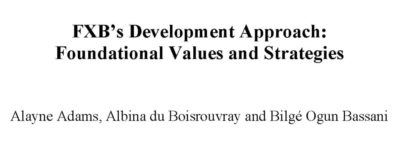
2010 - FXB’s Development Approach: Foundational Values and Strategies
In 2010, Alayne Adams, Albina du Boisvray and Bilgé Ogun Bassani published this document which highlights FXB's core values: children's rights, the primacy of families, the importance of local expertise, capacity building, continuous training and the restoration of human dignity.
Visit website

2009 - Hopes Alive : Surviving AIDS and Despair - FXB India Suraksha
Publication of a collection of testimonies by FXB India Suraksha. This book is a tribute to the families and children who are courageously confronting the HIV/AIDS epidemic in India, as well as to the frontline workers whose determined efforts are changing the lives of AIDS orphans and vulnerable children, thereby strengthening the national response to the epidemic.
Visit website

2009 - Iridescent Reflections - FXB Afrique du Sud.
Publication on World AIDS Orphans' Day of "Iridescent Reflections", a collection of stories and poems written by the 250 children of the FXB after-school support programme in the slums of South Africa.
Visit website

2009 - Rapport final JLICA
Publication of the final report of the Joint Learning Initiative on Children and AIDS (JLICA), of which FXB is one of the main partners.
"Home Truths: Facing the Facts on Children, AIDS and Poverty" argues for a reorientation of policies in countries hard hit by AIDS.
Visit website
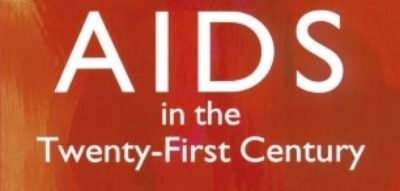
2002 - AIDS in the Twenty-First Century » - Tony Barnett et Alan Whiteside
Funded by the FXB Foundation, this groundbreaking study argues that it is essential to look at disease in its entirety.
Accessible, this book is essential reading for policymakers, students and anyone concerned about the relationship between poverty, inequality and infectious disease.
Visit website

2001 - FXB Orphan Alert 2 : Children of the HIV/AIDS Pandemic, the Challenge for India
India is currently facing a rapidly growing HIV/AIDS pandemic.
The main objective of this research is to assess the current situation of AIDS orphans in India, in order to understand the specific needs of orphans and their caretaker households to provide a planning basis for the foreseeable AIDS orphan crisis that India will face in the near future.
Visit website

2000 - FXB Orphan Alert 1 : International Perspectives on Children Left Behind by HIV/AIDS
Ce cri d'alerte à la société civile attire l'attention sur la pandémie du VIH/sida et sur le sort des millions d'orphelins que le sida laisse dans son sillage.
Ce volume est composé de deux sections, chacune contenant trois articles. A travers les articles compilés, FXB cherche à compléter les lacunes du discours actuel et à faire progresser les connaissances et les pratiques dans ce domaine.
Visit website
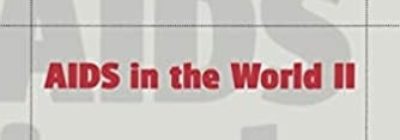
1996 - AIDS in the World II
Publication of "AIDS in the World II" by the Global AIDS Policy Coalition (GAPC) and the FXB Center for Health and Human Rights at Harvard.
In this book, the authors demonstrate that the AIDS pandemic is becoming increasingly fragmented among the world's population. They present evidence that goes beyond the current understanding of the vulnerability of nations and communities to the pandemic.
Visit website
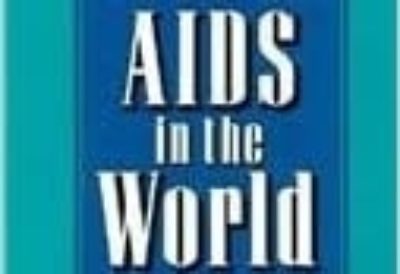
1992 - AIDS in the World I
Publication of "AIDS in the World I" by the Global AIDS Policy Coalition (GAPC) and the FXB Center for Health and Human Rights at Harvard.
This book is the first comprehensive analysis of humanity's global confrontation with AIDS. It provides a truly global understanding of the pandemic and promotes both a local and global view. Its aim is to provide information to help develop a global perspective on the HIV/AIDS pandemic, the response to it and the direction we are taking.
Visit website